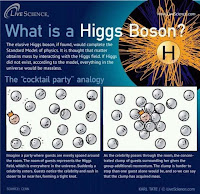Neil Gaiman - Acerca de S.O.P.A
Neil GAIMAN, Prolífico Escritor y creador de hisotrietas habla acerca de SOPA
"Cuando la Web inició, me puse de mal humor con la gente por subir mis poemas subieron mis historias. Subieron mis cosas a la web. Tuve esta creencia, que era completamente errónea, que si la gente sube cosas en la web y que no les dices que las quiten, podrías perder tus derechos de autor, que en realidad, simplemente no es verdad.
"Cuando la Web inició, me puse de mal humor con la gente por subir mis poemas subieron mis historias. Subieron mis cosas a la web. Tuve esta creencia, que era completamente errónea, que si la gente sube cosas en la web y que no les dices que las quiten, podrías perder tus derechos de autor, que en realidad, simplemente no es verdad.
 Y me ponía de mal humor porque me sentía como si estuvieran pirateando mis cosas, eso estaba mal. Y entonces empecé a notar dos cosas que parecían mucho más importantes. Uno de las cuales fue ...que en lugares donde se estaban pirateando mis cosas, en particular Rusia, las personas estaban traduciendolas a ruso y difluyéndolas en todo el mundo, yo estaba vendiendo más y más libros. La gente me descubrió a través de la piratería. Luego van salen y compran los libros reales, y cuando un nuevo libro salga en Rusia, sé que venderé más y más copias. Pensé que esto era fascinante, y he intentado algunos experimentos. Algunos de ellos son bastante difíciles, ya saben, convencer a mi editor, por ejemplo, para tomar uno de mis libros y colgarlo de forma gratuita. Tomamos "American Gods", un libro que se sigue vendiendo y vendiendo muy bien, y durante el mes que se puso completamente gratis en su sitio web. Se podía leer y se puedía descargar. Lo que sucedió fue que la venta de mis libros, a través de las librerías independientes, que es la única manera de medir, subió el mes siguiente a 300 por ciento
Y me ponía de mal humor porque me sentía como si estuvieran pirateando mis cosas, eso estaba mal. Y entonces empecé a notar dos cosas que parecían mucho más importantes. Uno de las cuales fue ...que en lugares donde se estaban pirateando mis cosas, en particular Rusia, las personas estaban traduciendolas a ruso y difluyéndolas en todo el mundo, yo estaba vendiendo más y más libros. La gente me descubrió a través de la piratería. Luego van salen y compran los libros reales, y cuando un nuevo libro salga en Rusia, sé que venderé más y más copias. Pensé que esto era fascinante, y he intentado algunos experimentos. Algunos de ellos son bastante difíciles, ya saben, convencer a mi editor, por ejemplo, para tomar uno de mis libros y colgarlo de forma gratuita. Tomamos "American Gods", un libro que se sigue vendiendo y vendiendo muy bien, y durante el mes que se puso completamente gratis en su sitio web. Se podía leer y se puedía descargar. Lo que sucedió fue que la venta de mis libros, a través de las librerías independientes, que es la única manera de medir, subió el mes siguiente a 300 por cientoEmpecé a darme cuenta que en realidad, no estás perdiendo los libros. Uno no está perdiendo ventas por tener cosas en la web. Cuando doy una charla grande de este tipo de temas y la gente dice: "Bueno, ¿qué pasa con las ventas que estoy perdiendo por la copia de estas cosas, que andan por ahí?" Comencé pidiendo al público que levantara sus manos para responder a una pregunta. Entonces les dije: "Bien, ¿tiene usted un autor favorito?" Ellos decían: "Sí". Y yo dije, "Bueno, Todos los que hayan descubierto a su autor favorito por medio de un libro prestado, levanten su mano. "luego pregunte:" Cualquier persona que haya descubierto a su autor favorito, caminando en una librería y comprando un libro que levanten la mano. "Y es probable que unos cinco, diez por ciento de las personas que descubrieron a su autor favorito, lo hayan comprado todo de él. Son estos los que compran los libros de tapa dura y lo atesoran por ser del autor. Muy pocos compran el libro. A la mayoría se les prestó. Se les fue dado. No pagaron por él, y así es como encontraron su autor favorito. Y pensé, "Sabes, eso es todo lo que es esto. Que esta gente está prestando los libros. Y no se puede ver en eso una pérdida de venta. No es una venta perdida, nadie que hubiera comprado tu libro lo está comprando realmente o necesita comprarlo, ya que lo pueden encontrar de forma gratuita."
Lo que estás haciendo en realidad es publicidad. Estás llegando a más personas, creciendo en la conciencia del publico. El Entendimiento me dio una idea completamente nueva de la forma de los derechos de autor y de lo que la web estaba haciendo. Debido a que lo más importante que la web está haciendo es permitir que la gente escuche cosas. Permitiendo a la gente a leer las cosas. Permitiendo a la gente a ver las cosas que nunca hubiesen visto de otra forma. Y creo que, básicamente, ES ALGO INCREIBLEMENTE BUENO."
Neil Gaiman.
abajo les dejo el texto original
--------------------------------------------------------------------------------------------------
“
Neil Gaiman.
abajo les dejo el texto original
--------------------------------------------------------------------------------------------------
“
When the web started, I used to get really grumpy with people because they put my poems up. They put my stories up. They put my stuff up on the web. I had this belief, which was completely erroneous, that if people put your stuff up on the web and you didn’t tell them to take it down, you would lose your copyright, which actually, is simply not true.
And I also got very grumpy because I felt like they were pirating my stuff, that it was bad. And then I started to notice that two things seemed much more significant. One of which was… places where I was being pirated, particularly Russia where people were translating my stuff into Russian and spreading around into the world, I was selling more and more books. People were discovering me through being pirated. Then they were going out and buying the real books, and when a new book would come out in Russia, it would sell more and more copies. I thought this was fascinating, and I tried a few experiments. Some of them are quite hard, you know, persuading my publisher for example to take one of my books and put it out for free. We took “American Gods,” a book that was still selling and selling very well, and for a month they put it up completely free on their website. You could read it and you could download it. What happened was sales of my books, through independent bookstores, because that’s all we were measuring it through, went up the following month three hundred percent
I started to realize that actually, you’re not losing books. You’re not losing sales by having stuff out there. When I give a big talk now on these kinds of subjects and people say, “Well, what about the sales that I’m losing through having stuff copied, through having stuff floating out there?” I started asking audiences to just raise their hands for one question. Which is, I’d say, “Okay, do you have a favorite author?” They’d say, “Yes.” and I’d say, “Good. What I want is for everybody who discovered their favorite author by being lent a book, put up your hands.” And then, “Anybody who discovered your favorite author by walking into a bookstore and buying a book raise your hands.” And it’s probably about five, ten percent of the people who actually discovered an author who’s their favorite author, who is the person who they buy everything of. They buy the hardbacks and they treasure the fact that they got this author. Very few of them bought the book. They were lent it. They were given it. They did not pay for it, and that’s how they found their favorite author. And I thought, “You know, that’s really all this is. It’s people lending books. And you can’t look on that as a loss of sale. It’s not a lost sale, nobody who would have bought your book is not buying it because they can find it for free.”
What you’re actually doing is advertising. You’re reaching more people, you’re raising awareness. Understanding that gave me a whole new idea of the shape of copyright and of what the web was doing. Because the biggest thing the web is doing is allowing people to hear things. Allowing people to read things. Allowing people to see things that they would never have otherwise seen. And I think, basically, that’s an incredibly good thing.
”



Comentarios
Publicar un comentario